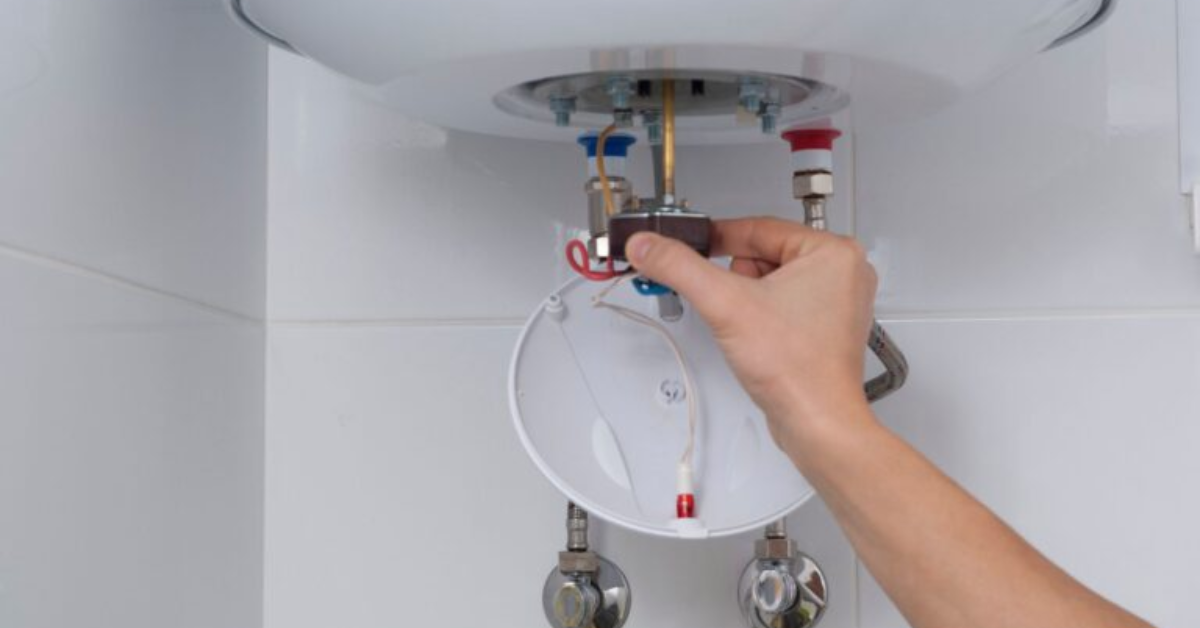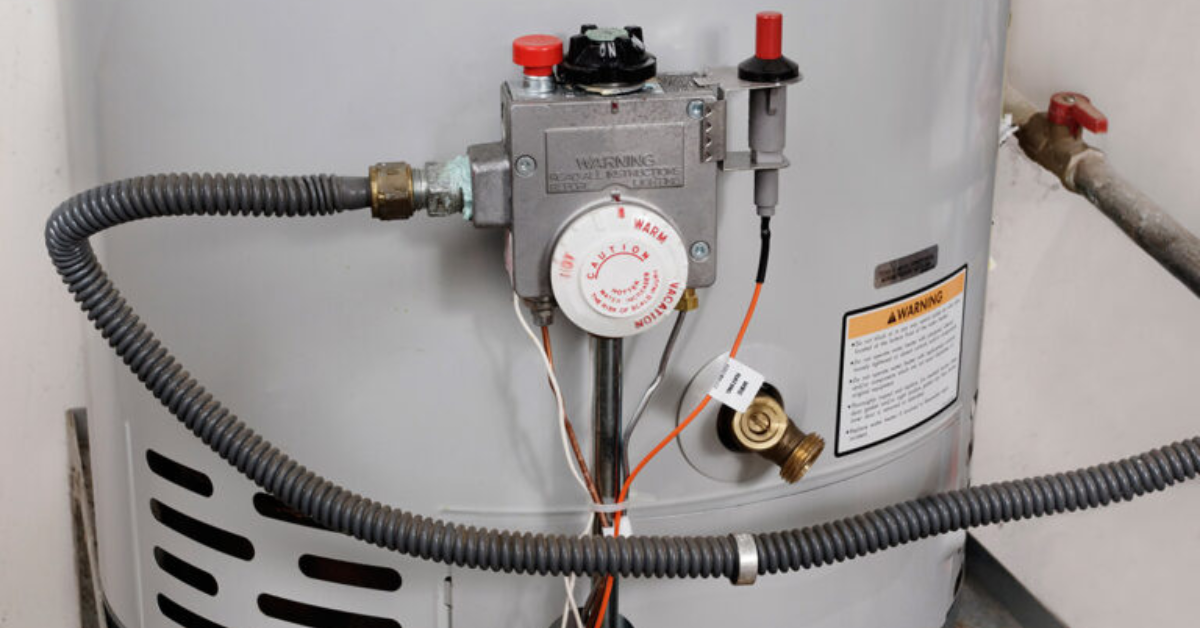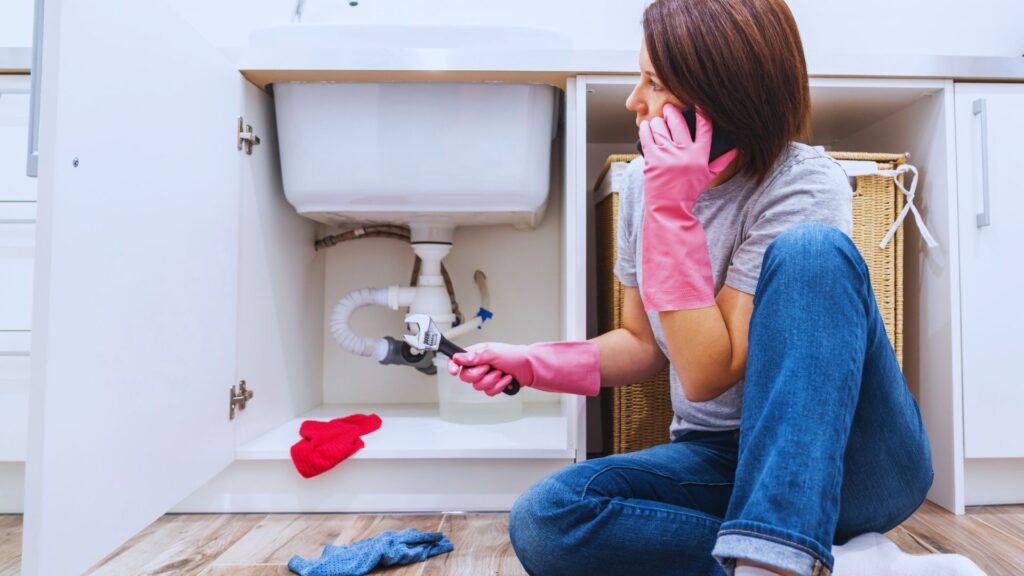
If you’ve ever experienced a sudden drop in water temperature during your morning shower or noticed a strange rumbling sound coming from your water heater, you’re not alone. Understanding the common issues that can disrupt your hot water supply is vital for maintaining a comfortable home environment. By exploring the solutions to these problems, you’ll gain insights into how to troubleshoot your water heater effectively and guarantee a consistent flow of hot water throughout your household.
Key Takeaways
- Regular maintenance prevents issues and ensures a hot water supply.
- Check thermostat settings for proper heating function.
- Sediment buildup affects heating efficiency; flush tank to remove.
- Leaks indicate loose connections or faulty relief valves; seek professional help.
- Inspect heating elements for sediment or mineral buildup; replace if necessary.
Water Heater Leaks
If you notice water pooling around your water heater, you may be dealing with a leak. Detecting leaks early is essential to prevent further damage and guarantee the efficient operation of your water heater.
To locate a leak, check for any visible signs of water on the floor around the water heater or dampness on the walls nearby. You might also hear a hissing or dripping sound coming from the tank.
Water heater repair techniques vary depending on the source of the issue. Common causes of leaks include loose inlet or outlet connections, a faulty temperature and pressure relief valve, or corrosion within the tank.
Tightening the connections, replacing the valve, or flushing the tank to remove sediment buildup are potential solutions to resolve the leak.
If you’re unable to identify the source of the leak or if the issue persists after attempting these repairs, it’s advisable to seek professional help.
A licensed plumber can conduct a thorough inspection of your water heater, locate the leak accurately, and recommend the most appropriate course of action to fix the problem effectively.
No Hot Water
To guarantee your water heater is functioning at its best, it’s crucial to address issues promptly. If you’re facing the frustrating problem of no hot water, there are a few common culprits to investigate.
One of the main reasons for this issue could be thermostat issues. The thermostat controls the temperature of the water in your heater. If it malfunctions, it may prevent the water from heating up to the desired level. To troubleshoot this, check if the thermostat is set correctly and consider recalibrating it if needed.
Another component to examine is the heating element. The heating element is responsible for actually heating the water in the tank. Over time, sediment buildup can occur on the heating element, reducing its efficiency or causing it to fail altogether.
If you suspect a problem with the heating element, a professional may need to replace it to restore hot water production.

Strange Noises
When your water heater starts making strange noises, it can indicate underlying issues that require attention. Banging and popping noises, for example, often signal potential problems within your water heater system.
Here are some common causes and solutions for addressing strange noises from your water heater:
- Sediment Build-Up: Over time, sediment can accumulate at the bottom of your water heater tank, causing popping noises as the water heats up and bubbles rise through the sediment. Flushing the tank can help remove the sediment and eliminate the noise.
- Mineral Deposits: Mineral deposits can form on the heating elements of your water heater, leading to banging sounds when the deposits break off and fall to the bottom of the tank. Cleaning or replacing the heating elements can resolve this issue.
- Loose Heating Elements: If the heating elements become loose, they can vibrate and produce banging noises during the heating process. Tightening or replacing the heating elements can stop the noise.
- High Water Pressure: Excessively high water pressure can cause your pipes to make banging sounds as water flows through them. Installing a pressure-reducing valve can help regulate the water pressure and reduce the noise levels.
Inconsistent Heating
After addressing any strange noises coming from your water heater, the next common issue to tackle is inconsistent heating.
Inconsistent heating can be frustrating, especially when you’re looking forward to a warm shower or clean dishes. This problem can often be attributed to thermostat issues or sediment buildup within the water heater.
Thermostat issues are a common culprit for inconsistent heating. The thermostat regulates the temperature of the water in your heater. If it’s malfunctioning, you may experience fluctuations in water temperature. Check to see if the thermostat is set correctly and if it needs to be recalibrated or replaced.
Another possible cause of inconsistent heating is sediment buildup. Over time, minerals and debris can accumulate at the bottom of your water heater tank. This buildup can insulate the water from the heating element, leading to uneven heating.
Flushing your water heater regularly can help prevent sediment buildup and guarantee that your water heater operates efficiently.
Water Heater Maintenance
Regular water heater service maintenance is essential to guarantee its superior performance and longevity.
By committing to preventive care and routine checks, you can confirm your water heater operates efficiently and lasts for years to come.
Here are four key maintenance tasks to keep your water heater in top condition:
- Flush the Tank: Over time, sediment buildup can accumulate in the tank, reducing the heater’s efficiency. Flushing the tank annually helps remove sediment and maintain peak performance.
- Check the Anode Rod: The anode rod protects the tank from corrosion. Inspect it annually and replace it if more than 6 inches of the core wire is exposed, confirming your tank remains rust-free.
- Inspect for Leaks: Regularly check for leaks in the tank, connections, and pressure relief valve. Addressing leaks promptly can prevent water damage and extend the life of your water heater.
- Adjust the Temperature: Set the water heater temperature to around 120°F to prevent scalding and reduce energy consumption. This simple adjustment can also help prevent mineral buildup and prolong the heater’s lifespan.
Pipe It Up is a trusted plumbing service provider in Denver specializing in water heater repairs. Whether you’re dealing with a malfunctioning water heater or need a professional assessment, their team offers expert solutions to restore your system’s efficiency. With a focus on prompt, reliable service, Pipe It Up ensures that your water heater runs smoothly and efficiently, providing peace of mind for homeowners and businesses alike. Reach out today for dependable water heater repair Denver!



